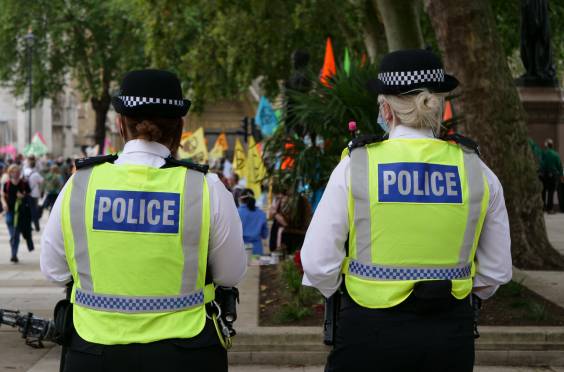Deep Fakes and Criminal Law
A Deep Dive Into Deep Fakes And Criminal Law
The rise of 'deepfakes' as a sophisticated form of digital manipulation and their potential to aid those committing criminal offences and/or cause harm and distress has drawn the attention of governments and lawmakers worldwide. The British Government has recently announced it will pass new legislation making the creation of explicit deepfake images or the installation of equipment to enable such creations, a criminal offence. This acknowledges the growing threat that deepfakes pose to people and society.
What is a deepfake?
A deepfake is a digital media manipulation technique that uses artificial intelligence (AI) to create realistic but fabricated images, videos, or audio recordings. The term deepfake itself is a combination of deep learning, a subset of machine learning involving neural networks, and fake. In essence, deepfakes are sophisticated forgeries that make it appear that someone has said or done something they never actually did.
Deepfakes are often created using a type of AI model called a Generative Adversarial Network (GAN). GANs work by training two neural networks against each other: one network generates fake content (the generator), while the other attempts to distinguish between real and generated content (the discriminator). Over time, the generator becomes increasingly adept at creating realistic fakes that can deceive the discriminator, ultimately resulting in convincing deepfake media.
While deepfakes have legitimate uses in entertainment and creativity, they are increasingly used for malicious purposes, such as creating non-consensual explicit videos, impersonating public figures, or spreading misinformation.
How are deepfakes used in criminal activity?
Non-Consensual Explicit Content
Deepfake technology can be used to create non-consensual explicit images or videos. Perpetrators can take images of person and superimpose their face onto pornographic content, creating a fabricated video that appears disturbingly real. This malicious use often targets women and can lead to severe reputational damage, harassment, and psychological trauma. Channel 4 newsreader Cathy Newman recently revealed that her face was superimposed onto pornography. She told the Evening Standard:
"It was kind of me and not me, and yet it was incredibly invasive.
"It was a sort of disgusting fantasy that someone had had and decided to create of me in all sorts of different sexual positions.
"It was really disturbing and violating is really the best way to describe it."
This is the type of incident the new law on creating explicit deepfake images is designed to tackle. Law enforcement agencies will be given more scope to prosecute those who use deepfakes to harm others, providing much-needed protection for victims. It also strongly conveys that using technology to violate privacy, harass, or extort people will not be tolerated.
Fraud and identity theft
Deepfakes can be used to impersonate others, including high-profile individuals, convincingly. In cases of business email compromise or CEO fraud, a deepfake audio recording or video could be used to trick employees into transferring funds or sharing sensitive information. This form of identity theft could also be exploited to gain unauthorised access to personal accounts or government benefits.
Political Misinformation
Deepfakes pose a significant threat in the realm of politics. They can be weaponised to create fake videos of politicians or public figures making controversial statements or engaging in behaviour that undermines their credibility. For example, during a manipulated recorded speech, Belgium's Premier Shophie Wilmès, linked the coronavirus pandemic to climate change.
Extortion and Blackmail
Individuals can use deepfakes to extort others by threatening to release fabricated explicit images or videos unless a ransom is paid.
What are the possible defences concerning criminal charges in connection with using deepfakes?
While the creation or use of deepfakes to commit criminal offences is becoming increasingly scrutinised, there are defences available. Key considerations include intent, knowledge, and the specific circumstances of the alleged offence.
Lack of Criminal Intent
To secure a conviction, the Prosecution generally needs to prove the Defendant intended to commit a criminal offence. This is referred to as the mens rea element of the offence. If a person created or shared deepfake content without malicious intent or was unaware of its harmful implications, they may have a defence. For instance, if the Defendant had a reasonable belief that the deepfake content was not explicitly offensive or damaging, this might negate the requisite intent for a conviction.
Mistaken Identity
In some cases, it may be argued that the Defendant is a victim of mistaken identity or that their account was hacked and used to disseminate deepfake content without their knowledge. Expert evidence such as digital forensic analysis could support this defence by identifying unauthorised access.
Consent
A person may argue that they had obtained the consent of the individual whose image or likeness was used in the deepfake content.
Freedom of Expression
In some cases, the Defendant may allege that creating or sharing deepfake content was an exercise of free speech. This argument might arise in deepfakes that parody or satirise public figures. However, freedom of expression is not an absolute right and must be balanced against potential harm to people and society.
Wrapping up
Deepfakes represent a formidable technological challenge that can be harnessed for both creative and destructive purposes. The British Government's proposed amendments to the Criminal Justice Act 2023 mark a crucial step toward curbing malicious deepfake activities. However, these legislative changes must be accompanied by public awareness, education, and continued technological innovation to effectively identify and counter deepfake media.
People accused of using deepfakes to commit crimes have various defences available, depending on the circumstances and their intent. It is essential to seek legal advice from an experienced Criminal Law Solicitor who understands the evolving laws surrounding deepfakes.
If you have any questions regarding this article, please call 0300 3732424. If you have been arrested and require police station representation, please get in touch through our emergency number 0300 373399.

